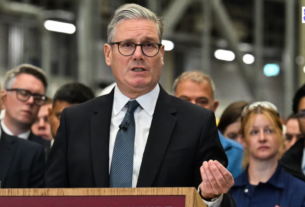The United Kingdom is facing growing pressure from NATO allies to increase its defence spending to 3.5% of GDP by 2035, as the alliance prepares to adopt a new set of military expenditure benchmarks in response to rising global threats. The move, expected to be endorsed at the upcoming NATO summit, would mark a significant shift in expectations for member nations. Under the proposed framework, NATO members would allocate 5% of GDP to overall security spending, with 3.5% dedicated to core defence capabilities and 1.5% directed toward related priorities such as cybersecurity, infrastructure, and military readiness. This represents a considerable step up from the current NATO guideline, which asks countries to spend at least 2% of GDP on defence, a target that many nations still struggle to meet.
Prime Minister Keir Starmer has voiced general support for the proposed increase, recognizing the need for the UK to play a leading role in safeguarding European and transatlantic security. With Russia’s ongoing aggression in Ukraine and heightened tensions in the Indo-Pacific region, the demand for increased investment in defence and deterrence is growing. Defence Secretary John Healey is expected to back the new 3.5% target during ministerial discussions, although questions remain about how such a financial commitment will be funded. The government has already pledged to raise defence spending to 2.5% of GDP by 2027, a policy that will partly rely on cuts to foreign aid and reprioritization within existing budgets.
However, moving beyond 2.5% will require deeper fiscal sacrifices or significant changes in tax and spending policy. Critics warn that meeting the 3.5% benchmark could mean either scaling back other public services or taking on greater national debt. At the same time, supporters argue that investing in defence is now more essential than ever, not just for the UK’s security but for its credibility and leadership within NATO. NATO Secretary-General Mark Rutte and other alliance leaders have emphasized the urgency of boosting readiness and strengthening deterrence, particularly as the United States pushes its European partners to shoulder more of the collective burden.
As the UK heads into crucial NATO discussions, the government must weigh its defence commitments against domestic economic realities. The coming months will reveal whether Britain can navigate this delicate balance and affirm its strategic role on the international stage, or whether financial constraints will limit its ambitions in an increasingly volatile global landscape.




